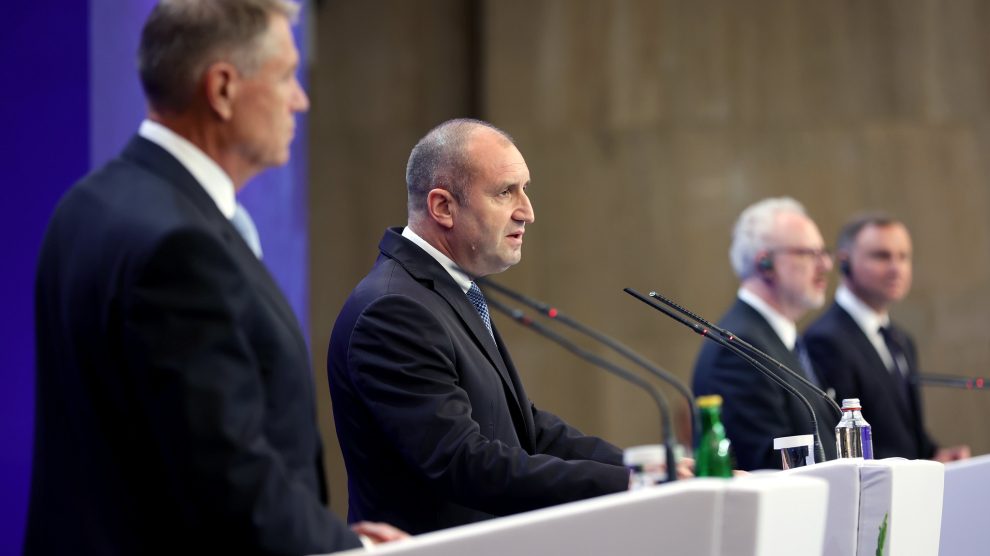Media coverage of emerging Europe primarily focuses on the relationships of the region’s countries with the European Union (EU) and North Atlantic Treaty Organisation (NATO).
However, the 23 countries also make use of many other sub-regional formats, initiatives, and organisations to coordinate and advance their policy priorities and relations.
We have put together a non-exhaustive, two-part guide to several of the most important. Here we look at Europe-based organisations, while part two looks at initiatives which include Asian components.
Three Seas Initiative (3SI)
Also known as the Baltic, Adriatic, Black Sea (BABS) Initiative, the Three Seas Initiative is comprised of the twelve EU member states that form the north-south access from the Baltic Sea south to the Adriatic and Black Seas: Austria, Bulgaria, Croatia, Czechia, Estonia, Hungary, Latvia, Lithuania, Poland, Romania, Slovakia, and Slovenia. In 2022, Ukraine became a ‘partner-participant’ in the 3SI as well.
TSI was launched in 2015 by Polish President Andrzej Duda and his then Croatian counterpart Kolinda Grabar-Kitarović. It held its first summit in August 2016 in Dubrovnik to promote cooperation in transport and communications infrastructure and energy. While its first summit was attended by representatives from both China—to promote interconnectedness with the Belt and Road Initiative (BRI)—and the US, no Chinese delegations have since attended meetings.
The 3SI—with financial support from the US—established the Three Seas Initiative Investment Fund in 2019 to supplement EU funding for infrastructure projects in participating countries.
In September 2023, the organisation will hold its eighth annual summit in the Romanian capital Bucharest.
Bucharest Format (B9)
The Bucharest Format, also known as the Bucharest Nine, was established in 2015 Duda and Romanian President Klaus Iohannis in response to Russia’s invasion and illegal annexation of Ukraine’s Crimean Peninsula.
The B9 is comprised of the nine nations that form NATO’s eastern flank in Europe excluding Turkey and Greece: Estonia, Latvia, Lithuania, Poland, Czechia, Slovakia, Hungary, Romania, and Bulgaria. Its work is focused on regional security.
The group holds yearly summits of either heads of state or foreign ministers, although it held an emergency summit in February 2022 after Russia’s full invasion of Ukraine in addition to its scheduled summit that June.
Secretary-General of NATO Jens Stoltenberg, US President Joe Biden, and President of the European Commission Ursula von der Leyen have all attended its summits virtually or in-person.
Visegrád Group (V4)
The Visegrád Group, also known as the Visegrád Four, was founded in 1991 by Hungary, Poland, and then-Czechoslovakia. After Czechoslovakia dissolved in 1993, both Czechia and Slovakia elected to remain members. It is a political and cultural alliance originally aimed at helping its members seek EU and NATO membership. All members have now joined both the EU and NATO, and the V4 countries formed the Visegrád Battlegroup as an EU Battlegroup in 2016.
The chief institutionalised form of V4 cooperation is the International Visegrád Fund, which provides grants to promote cultural ties and facilitate youth, scientific, and educational exchanges. The national patent offices of the four countries also created the Visegrad Patent Institute to increase cooperation.
Austerlitz/Slavkov Format
After the formation of the V4, there was a push to expand it to include Austria and Slovenia. There were on-and-off discussions for decades, but after Hungary threw cold water on a Czech proposal for expansion in 2014, the leaders of Austria, Czechia, and Slovakia met in Slavkov u Brna, also known as Austerlitz, in January 2015 to form what is alternately known as the Austerlitz Format or Slavkov trilateral as a complement to the V4.
Under this format, these three countries have worked to improve energy and transport infrastructure. It has also emerged as an important Central European grouping in relations with countries outside the region: foreign ministers from countries like India have met with their Austrian, Czech, and Slovakian counterparts in four-way meetings.
In July, the foreign ministers of the Slavkov trilateral travelled together to Skopje, on behalf of EU foreign policy chief Josep Borrell, to urge North Macedonia’s parliament to adopt the constitutional amendments necessary for Sofia to withdraw its veto on Macedonian EU accession.
Western Balkans Quad (WB QUAD)
The Western Balkans Quad initiative was launched in March 2023 by the leaders of Albania, Kosovo, Montenegro, and North Macedonia. All of the members except for Kosovo are members of NATO, and all four are seeking EU membership. In the context of an energy crisis and hybrid threats, WB QUAD aims to help participating countries align their foreign policy with the EU’s Common Foreign and Security Policy.
Serbia and Bosnia and Herzegovina—also both EU aspirants—were invited to join WB Quad but declined. Republika Srpska blocked Bosnia and Herzegovina from participating, and Serbia declined due to outstanding differences with Brussels over Belgrade’s warm relations with Moscow.
Open Balkans
Albania, North Macedonia, and Serbia agreed in late 2019 to found the Open Balkans Initiative to promote the free flow of goods and people between their countries. Bosnia and Herzegovina, Kosovo, and Montenegro were invited to join but declined, believing the initiative to be redundant to the EU integration agenda’s call for regional economic cooperation and concerns about changing their customs policies amid their EU accession processes.
This short-lived attempt at creating a “mini-Schengen Area” was apparently killed off in July 2023, when Albanian Prime Minister Edi Rama announced it would end after having “fulfilled its mission”.
Photo: Bulgarian News Agency (BTA)/3SI
Unlike many news and information platforms, Emerging Europe is free to read, and always will be. There is no paywall here. We are independent, not affiliated with nor representing any political party or business organisation. We want the very best for emerging Europe, nothing more, nothing less. Your support will help us continue to spread the word about this amazing region.
You can contribute here. Thank you.







Add Comment